Thanks to business models such as affiliate marketing and drop shipping, all you need to start an e-commerce business today is an internet connection and an internet-enabled device. To put it another way, you do not even need to keep the products you sell in stock. However, similar to a brick-and-mortar business, an e-commerce business is also exposed to liability risks, and you should carry the right insurance for your online store. The following questions will help you choose the right liability policies for your online store.
Am I Required to Have Insurance for My E-commerce Business?
If your e-commerce business has employees, you likely need to carry several liability insurance policies, including workers’ compensation insurance coverage, as well as disability and unemployment insurance policies for your state. However, most e-commerce platforms, including Etsy and Shopify will not require you to have business liability insurance.
Even So, Should I Carry Liability Insurance?
Similar to a brick-and-mortar business, an e-commerce business also has to contend with potential liability risks. To protect your business from such risks, you should carry liability insurance, even if you operate your online store on a platform such as Shopify that does not necessarily require you to carry liability insurance. Remember, without e-commerce business insurance to protect your online business, a liability lawsuit could easily drive your online business to financial ruin, causing you to file for bankruptcy.
What Are Some Common Liability Risks Associated with E-commerce Businesses?
Anyone from an unhappy customer to an irate competitor to an aggrieved supplier can sue you and your business for one reason or another. For this reason, you should always be ready to defend your business against a business-related lawsuit. Some of the possible reasons that may cause someone to bring a business-related lawsuit against you and your e-commerce business include:
- Data breaches
- Customer injuries
- Property damage
- Dangerous or defective product
- Illness or injury caused by your service or product offering
- Unfair business practices such as patent infringement
How Do I Choose the Right E-commerce Insurance Coverage?
In general, your e-commerce business insurance needs will largely depend on your service or product offering. However, even if you have unique liability insurance needs, most commercial insurance companies would be willing to create custom insurance policies to fit the needs of your industry niche. If you just need a standard liability policy, most commercial insurance companies offer the following insurance policies that you can use to protect your e-commerce businesses against certain liability risks.
- Cyber liability – Being an e-commerce business, your business likely collects, processes, and stores sensitive customers’ data either in-house or in the cloud. Unfortunately, cybercriminals are increasingly targeting such data, and data breaches are becoming increasingly common. In most cases, a data breach typically leads to a data breach lawsuit. This is where a cyber liability insurance policy comes in handy.
- General liability– This type of liability insurance protects you and your online business against third-party business-related lawsuits.
- Product liability – As the name implies, product liability insurance coverage protects your business against illness or injury that may be linked to your product or service offering.
- Professional liability– This liability insurance product can cover a wide range of things like unintentional patent or copyright infringement, product errors, and errors in product design or delivery.
You may want to consider some additional coverage types. These include coverage to protect your equipment, such as computers, printers, tools, supplies, or inventory. You may need insurance coverage for your internationally shipped goods.
These are some of the key questions to ask about insurance for e-commerce businesses before launching an online store. For assistance with your business insurance coverage needs and questions, contact the experts at CIA Insurance and Risk Management.
Comments are closed.




